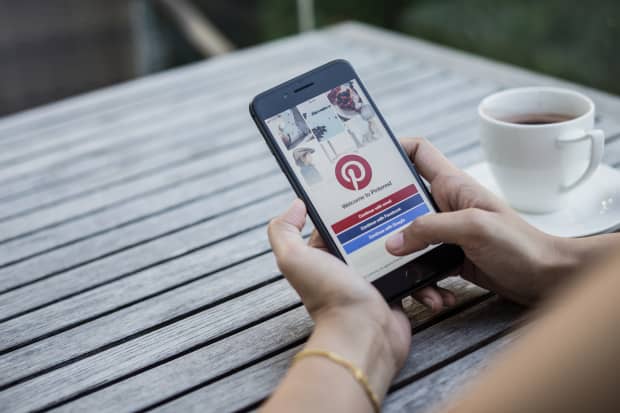
Pinterest Inc. continued to experience a surge in new users during the COVID-19 pandemic .
iStock/Getty Images
Pinterest Inc. and Snap Inc. have pushed hopes for an online-advertising rebound from the doldrums experienced early in the COVID-19 pandemic, but the optimism that has spilled over to the entire sector — especially Facebook Inc. — may be misguided.
Pinterest PINS,
Both reports also sent stocks for online-ad companies like Alphabet Inc. GOOGL,
Pinterest Chief Financial Officer Todd Morgenfeld referenced “the tailwind we’ve experienced from the advertiser boycott of social media that began in July” in a conference call Wednesday.
“We continued to benefit from marketers who are prioritizing positivity and brand safety,” Morgenfeld said. “Advertisers tell us that Pinterest is brand-safe relative to other consumer internet platforms and we benefited from this in Q3, though it’s still not clear how sustainable this trend will be, particularly after the U.S. election is over.”
Snap similarly spoke of advertisers looking for a safer platform, without mentioning whatever danger they may be running from.
“As brands and other organizations used this period of uncertainty as an opportunity to evaluate their advertising spend, we saw many brands look to align their marketing efforts with platforms who share their corporate values,” Snap Chief Business Officer Jeremi Gorman said last week.
Many advertisers loudly proclaimed a boycott of Facebook in July, which prominent celebrities eventually joined. The boycott, which stemmed from concerns about divisiveness and misinformation on the platform, did not have any impact on Facebook’s financial results last quarter, and analysts so far have predicted that dynamic will continue.
Facebook will report its third-quarter earnings Thursday afternoon, and based on its past performance in troubled times, it’s unlikely to see much of a dent to revenue even as it remains in the eye of the storm during the U.S. presidential election. But even if Facebook managed to weather the storm this fall, it could be losing prospective longtime users to the two rival services, with Pinterest saying that its COVID-19 surge is mostly made up of younger users, and with Snapchat permanently focused on attracting younger users.
It is an open question whether Pinterest and Snap can continue to leverage these gains and maintain their momentum. Both companies have much shorter operating histories and declined to provide actual guidance with their results, instead offering informal comments or perspectives on the quarter. Snap said it was not clear yet whether the “key source of advertising demand will materialize in the same way” this year as it has in prior years, given the pandemic.
Pinterest, for its part, said it was “difficult to predict near-term advertiser behavior, particularly in an election season.”
Both services have put themselves in position to benefit from Facebook’s losses though, both in the short term and the long term. While Facebook may be able to withstand any advertiser or user defections with its third-quarter report, competitors are strengthening as the backlash against Mark Zuckerberg and Facebook’s practices continues to taint the company.